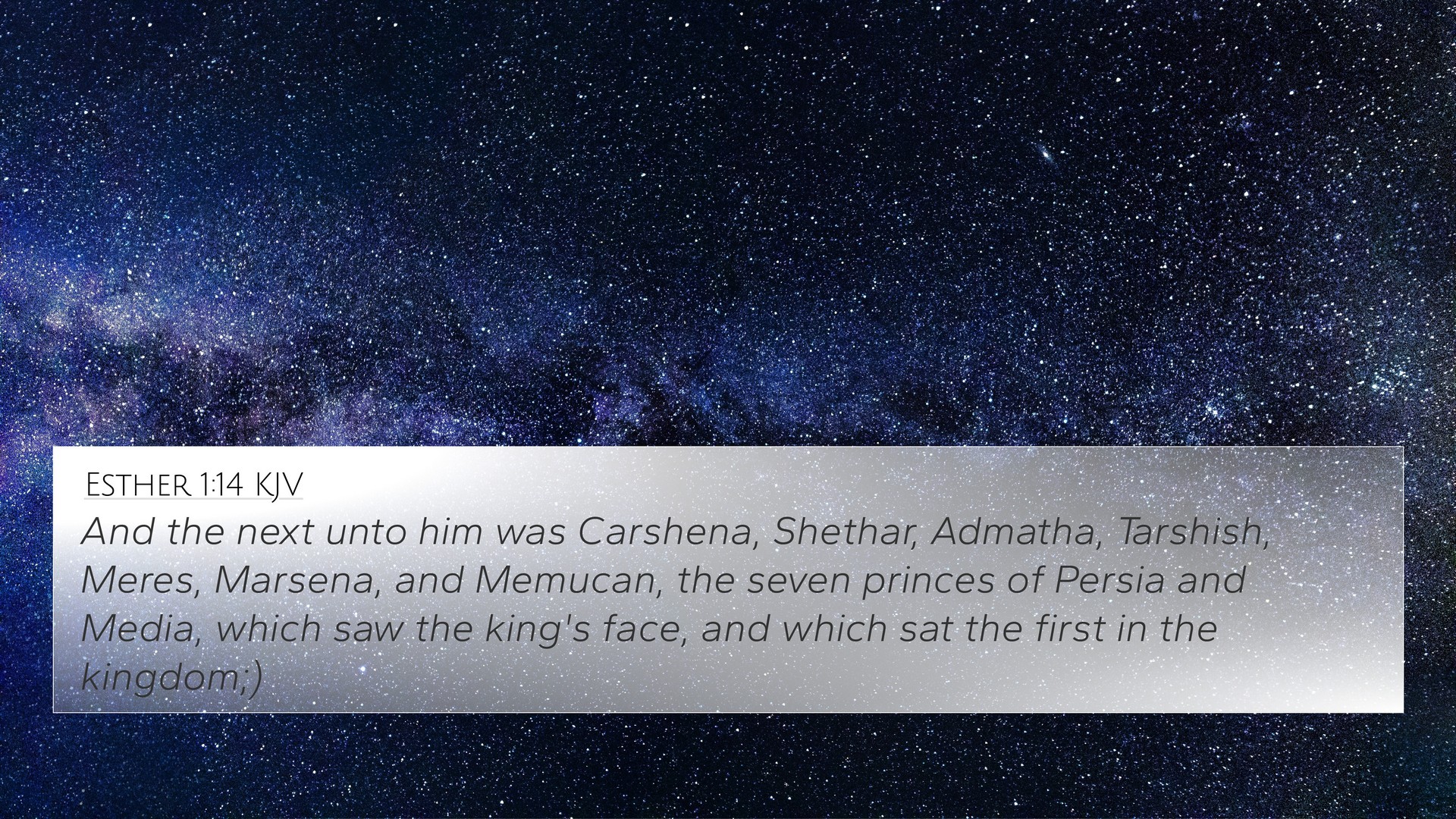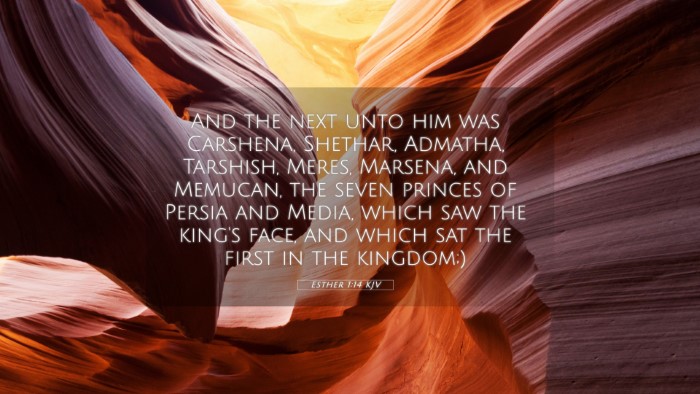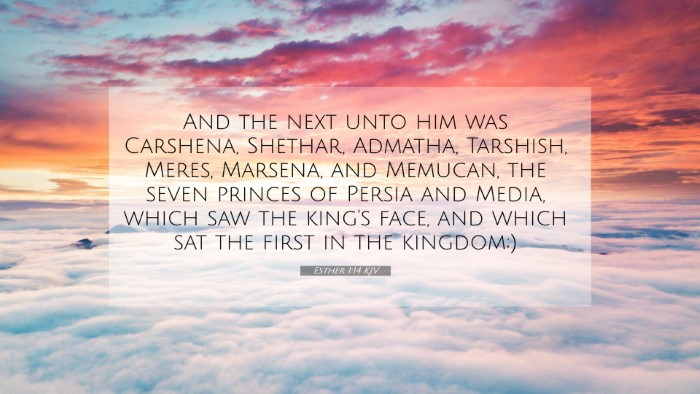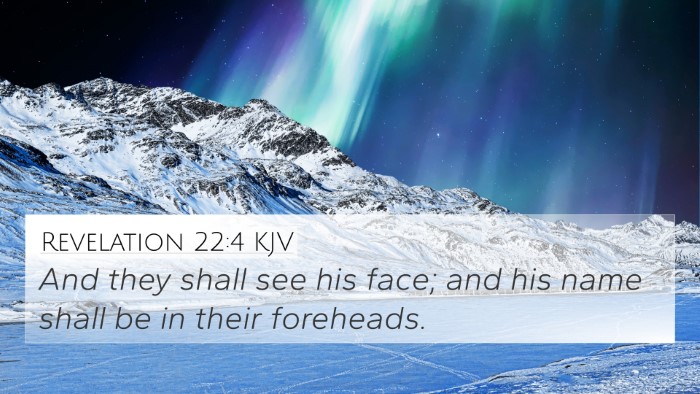Old Testament
Genesis Exodus Leviticus Numbers Deuteronomy Joshua Judges Ruth 1 Samuel 2 Samuel 1 Kings 2 Kings 1 Chronicles 2 Chronicles Ezra Nehemiah Esther Job Psalms Proverbs Ecclesiastes Song of Solomon Isaiah Jeremiah Lamentations Ezekiel Daniel Hosea Joel Amos Obadiah Jonah Micah Nahum Habakkuk Zephaniah Haggai Zechariah MalachiEsther 1:14 Similar Verses
Esther 1:14 Cross References
And the next unto him was Carshena, Shethar, Admatha, Tarshish, Meres, Marsena, and Memucan, the seven princes of Persia and Media, which saw the king's face, and which sat the first in the kingdom;)
Uncover the Rich Themes and Topics of This Bible Verse
Listed below are the Bible themes associated with Esther 1:14. We invite you to explore each theme to gain deeper insights into the Scriptures.
Esther 1:14 Cross Reference Verses
This section features a detailed cross-reference designed to enrich your understanding of the Scriptures. Below, you will find carefully selected verses that echo the themes and teachings related to Esther 1:14 KJV. Click on any image to explore detailed analyses of related Bible verses and uncover deeper theological insights.
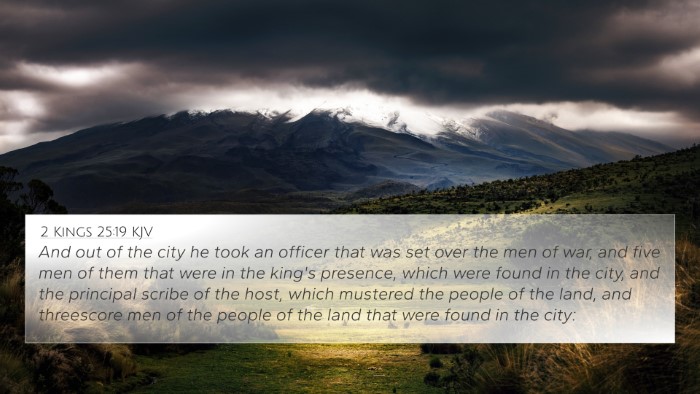
2 Kings 25:19 (KJV) »
And out of the city he took an officer that was set over the men of war, and five men of them that were in the king's presence, which were found in the city, and the principal scribe of the host, which mustered the people of the land, and threescore men of the people of the land that were found in the city:
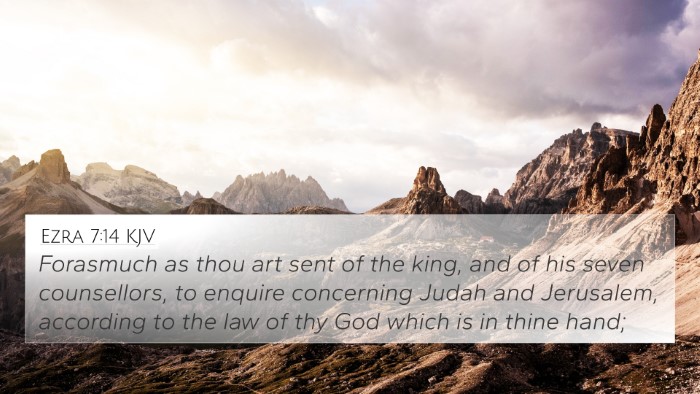
Ezra 7:14 (KJV) »
Forasmuch as thou art sent of the king, and of his seven counsellors, to enquire concerning Judah and Jerusalem, according to the law of thy God which is in thine hand;
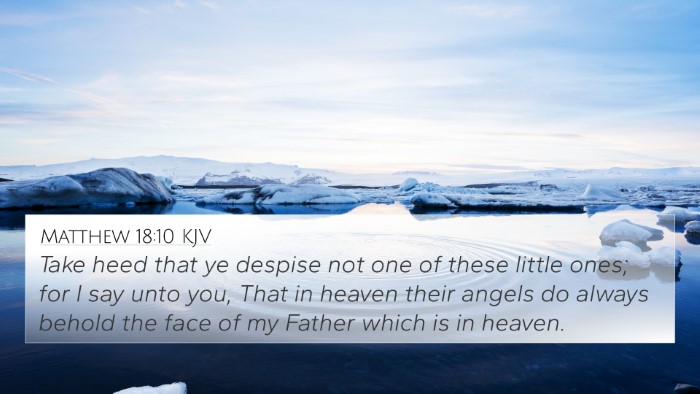
Matthew 18:10 (KJV) »
Take heed that ye despise not one of these little ones; for I say unto you, That in heaven their angels do always behold the face of my Father which is in heaven.
Esther 1:14 Verse Analysis and Similar Verses
Understanding Esther 1:14
Overview: Esther 1:14 provides vital context within the book of Esther, focusing on the counsel given to King Ahasuerus by his wise men regarding Queen Vashti's disobedience. This verse underscores themes of authority, wisdom, and governance in the narrative of Esther.
Verse Analysis
Esther 1:14 states: "And the next unto him was Carshena, Shethar, Admatha, Tarshish, Meres, Marsena, and Memucan, the seven princes of Persia and Media, which saw the king's face, and which sat the first in the kingdom." This serves to highlight the hierarchical structure of the Medo-Persian court.
Insights from Public Domain Commentaries
-
Matthew Henry:
Matthew Henry emphasizes the significance of the wise men of the king, noting their high standing and influence in the kingdom. These advisors symbolize the importance of counsel in governance and the impact of collective wisdom on decision-making.
-
Albert Barnes:
Barnes elaborates on the purpose of listing these seven princes, indicating their roles as key advisors who hold the king’s ear. This highlights the political landscape and the dynamics of power at play, suggesting that their influence is critical in the unfolding events of the narrative.
-
Adam Clarke:
Clarke's commentary discusses the individual names of the princes, contemplating their meanings and the roles they may represent within the story. He notes the distinct cultural background of these leaders and draws attention to the symbolic implications of their presence at the king’s court.
Cross-References and Thematic Connections
Esther 1:14 draws connections to various other Bible verses and themes, providing a richer context for understanding its implications. Below are key cross-references:
- Proverbs 15:22: "Without counsel purposes are disappointed: but in the multitude of counselors they are established."
- 1 Kings 4:27: "And those officers provided victual for King Solomon, and for all that came unto King Solomon's table, every man in his month: they lacked nothing."
- Esther 4:14: "For if thou altogether holdest thy peace at this time, then shall there enlargement and deliverance arise to the Jews from another place; but thou and thy father's house shall be destroyed."
- Daniel 2:48: "Then the king made Daniel a great man, and gave him many great gifts, and made him ruler over the whole province of Babylon, and chief of the governors over all the wise men of Babylon."
- Ecclesiastes 4:9-10: "Two are better than one; because they have a good reward for their labour. For if they fall, the one will lift up his fellow: but woe to him that is alone when he falleth; for he hath not another to help him up."
- Proverbs 11:14: "Where no counsel is, the people fall: but in the multitude of counselors there is safety."
- Isaiah 19:11: "Surely the princes of Zoan are fools, the counsel of the wise counselors of Pharaoh is become brutish: how say ye unto Pharaoh, I am the son of the wise, the son of ancient kings?"
Thematic Bible Verse Connections
This verse can be linked to broader themes in the Bible related to leadership, wisdom, and the consequences of counsel:
- Leadership and Governance
- The Role of Counsel in Decision-Making
- The Dynamics of Power and Influence
- Consequences of Disobedience
- The Importance of Collective Wisdom
Conclusion
Esther 1:14 serves as a crucial point in understanding the political and social dynamics within the story. By considering the insights from various commentaries and the multitude of connections this verse has with others in Scripture, one can appreciate the layers of meaning present in this brief yet profound narrative. Utilizing tools for Bible cross-referencing can further enrich our study of such verses, opening avenues for deeper understanding and application of Biblical truths.
